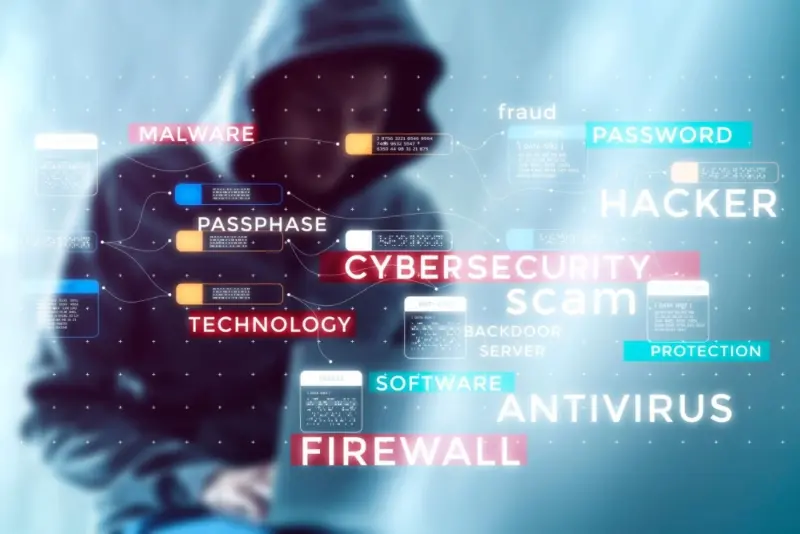
In today’s world, we rely heavily on technology. Our personal and professional lives are intertwined with digital devices and online services. However, as our reliance on technology grows, so does the risk of cyber threats. Cybersecurity breaches have become a common occurrence, and the consequences can be severe. From identity theft to financial losses, cyberattacks can lead to devastating consequences. As a highly skilled assistant in digital marketing, I understand the importance of cybersecurity and the need to stay informed about the latest threats. In this article, we will explore the most dangerous cybersecurity threats and how you can protect yourself from them. So, are you at risk? Let’s dive in and find out.
What are cybersecurity threats?
Cybersecurity threats are malicious activities that target digital devices, networks, and data. These threats can take the form of malware, phishing attacks, ransomware, and more. Cybersecurity threats can cause damage to your personal and professional lives. Cybercriminals use various techniques to exploit vulnerabilities in your digital devices and networks to gain access to sensitive information. These attacks can affect anyone, regardless of their technical knowledge.
Cybersecurity threats can harm your personal life and professional responsibilities.
Downtown Managed Services can help you protect confidential information and improve business data protection. Call today at (954) 524-90-02 and order a cyber threat protection solution!
Types of cybersecurity threats
Malware
Malware is a type of software created to harm your digital device or network. Malware can be in the form of a virus, worm, trojan, or spyware. Once malware infects your device or network, it can steal your sensitive information, delete your data, or encrypt your files, making them unusable. Malware can be spread through emails, social media, or malicious websites.
Phishing
Phishing is a type of attack that aims to steal sensitive information, such as passwords, credit card details, and bank account information. Phishing attacks can take the form of emails, text messages, or phone calls. Cybercriminals create fake websites that look like legitimate ones to trick you into entering your sensitive information. Phishing attacks can cause financial loss and identity theft.
Ransomware
Ransomware is a type of malware that encrypts your files and demands a ransom to decrypt them. Cybercriminals use ransomware to extort money from their victims. Once ransomware infects your device or network, it encrypts your files, making them unusable. Cybercriminals demand a ransom to decrypt your files. Ransomware can cause financial and data loss.
Man-in-the-Middle attacks
Man-in-the-Middle (MITM) attacks are when a cybercriminal intercepts the communication between two parties to steal sensitive information. MITM attacks can occur on public Wi-Fi networks or compromised routers. Cybercriminals use MITM attacks to steal your passwords, credit card details, and other sensitive information. MITM attacks can cause financial loss and identity theft.
How do cybersecurity threats affect individuals and businesses?
Cybersecurity threats can cause severe damage to individuals and businesses. Cyberattacks can lead to financial loss, identity theft, and data loss. Individuals can lose their personal information, such as credit card details and social security numbers, which can lead to identity theft. Businesses can suffer financial losses due to ransomware attacks and data breaches. Cyberattacks can damage a business’s reputation, leading to a loss of customers.
Cybersecurity statistics
According to a study by Cybersecurity Ventures, cybercrime will cost the world $10.5 trillion annually by 2025. Cybersecurity Ventures also estimates that a business falls victim to a ransomware attack every 11 seconds. The study also found that small businesses are more vulnerable to cyberattacks than large enterprises. Small businesses are targeted more frequently because they have fewer resources to invest in cybersecurity.
Prevention is better than cure – How to protect yourself and your business from cybersecurity threats
(h3) Cybersecurity tips for individuals
- Use strong passwords and change them regularly.
- Enable two-factor authentication for all your accounts.
- Avoid clicking on suspicious links or downloading attachments from unknown sources.
- Keep your software up to date.
- Use reputable antivirus software and keep it up-to-date.
- Use a VPN when using public Wi-Fi.
- Back up your data regularly.
(h3) Cybersecurity tips for businesses
- Train your employees on cybersecurity best practices.
- Implement a strong password policy.
- Use two-factor authentication for all accounts.
- Use reputable antivirus software and keep it up-to-date.
- Implement a firewall to protect your network.
- Back up your data regularly.
- Conduct regular security audits.
The role of cybersecurity professionals
Cybersecurity professionals play a crucial role in protecting individuals and businesses from cyberattacks. They are responsible for identifying vulnerabilities in networks and digital devices and developing strategies to mitigate them. Cybersecurity professionals monitor networks and digital devices for any suspicious activities and respond to cyberattacks.
Cybersecurity tools and software
There are various cybersecurity tools and software available to protect individuals and businesses from cyberattacks. Antivirus software, firewalls, VPNs, and encryption software are some tools used to protect digital devices and networks from cyber threats. These tools and software work together to create a secure digital environment.
Conclusion
In conclusion, cybersecurity threats are a significant concern in today’s digital age. Cyberattacks can cause severe damage to both individuals and businesses. Cybersecurity professionals play a crucial role in protecting individuals and businesses from cyber threats. By following cybersecurity best practices and using cybersecurity tools and software, we can protect ourselves from cyberattacks. Remember, prevention is better than cure. Stay informed and stay safe.
Learn how to prevent hacks, intrusions, and the theft of private data by finding out how our IT support can significantly improve your team’s network security and cyber security. Just fill out our quick form to ask for a cybersecurity consultation!
